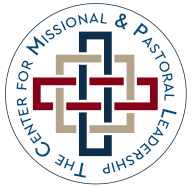CMPL Newsletter
February 28, 2025
| Thank you for joining the weekly newsletter from The Center for Missional and Pastoral Formation! |
| Our goal is to support congregations and leaders through outstanding theological education, with an emphasis on the Bible, our Reformation heritage, God’s mission, our global context, all delivered in an affordable way. |
| Through our partnership at the Institute of Lutheran Theology, we deliver online theological education with some of the best Lutheran teachers and scholars. This newsletter will update you on the program, courses being offered, introduce you to the faculty, and share resources. We will also share prayer opportunities and how to connect to CMPL and ILT as a full-time or part-time student. Our prayer is that we may all be “children of God without blemish in the midst of a crooked and perverse generation, in which you shine like stars in the world, holding forth the word of life” (Philippians 2:15-16).
We look forward to partnering with you in this work of God. |
Missional
Biblical. Reformational. Missional. Affordable. Global. These are the five key themes around which we organized the Center for Missional and Pastoral Leadership. What do we mean by “missional”? Not merely that a “missions” or “evangelism” class is tacked on to the academic program. Rather, all our teaching, curriculum, and ministry experiences are viewed through and in support of God’s mission. God’s mission [theologians often use the Latin missio Dei] is expressed quite clearly in the Scriptures, in different ways, and in different formulations. For example, Jesus says in John 12: “I have come as light into the world, so that everyone who believes in me should not remain in the darkness.” That is, Christ Jesus was sent so that all people could be drawn to him and called into his light. Or take Colossians 1: “He has rescued us from the power of darkness and transferred us into the kingdom of his beloved Son.” God’s work in sending Jesus Christ has brought a new Kingdom, and we are brought into that Kingdom by God’s mercy through the power of the Gospel of Jesus Christ. That is what the word “mission” means – to be “sent”—from the Latin word mitto, “to send,” the word that translates ἀπόστολος (“apostle”) from Greek—an “apostle” is “one who is sent on a mission.”
We are called into this same mission. As Jesus himself says, “As the Father has sent me, even so, I am sending you” (John 20:21). We are sent by God to bring the Gospel of Jesus Christ to all people. The Apostle Paul describes his work as an apostle as one who is sent to speak this good news of the Gospel: “God our Savior desires all people to be saved and to come to the knowledge of the truth. For there is one God, and there is one mediator between God and men, the man Christ Jesus, who gave himself as a ransom for all, which is the testimony given at the proper time. For this I was appointed a preacher and an apostle” (1 Timothy 2:3-7). For 2000 years, God’s mission has been carried out by the people of God, and it is this same mission to which you and I are called.
How would this mission of God be reflected, for example, in a New Testament course? Again, while there are clear passages that describe God’s mission and call us into that mission, the missional focus of the Scriptures is more fundamental and pervasive throughout the biblical texts. A new commentary on 1 Corinthians captures this well:
So, too, with the term "missional." It does not refer exclusively, or even primarily, to those understood to be Christian missionaries or mission workers. If Scripture is an instrument by which the Spirit seeks to draw all people more deeply into the life of the triune God, it is also an instrument of the Spirit's sending God's people out. As we are pulled into the life of God, who is by nature missional, we are prepared to be dispatched into the world that God loved and loves. In other words, theological interpretation includes missional interpretation, or missional hermeneutics-reading Scripture to discern and embody God's purposes in the world —the missio Dei. With respect to 1 Corinthians, the conviction that a theological-pastoral-missional approach is appropriate is a natural outgrowth of the view that this letter was, and is, itself a theological-pastoral-missional document. (Michael J. Gorman, 1 Corinthians. A Theological, Pastoral, and Missional Commentary, Eerdmans, 2025, pp. 28-29)
This “missional” focus in the Scriptures and at the Center for Missional and Pastoral Leadership is embedded into the teaching, learning, and experiences throughout the program. Our prayer is that we can support congregations and ministries through this program so that, as Luther’s Catechism teaches us, “God’s Kingdom may come among us also.”
Rev. Dr. Jeffrey Kloha
Jeffrey Kloha is the Dean of the Center for Missional and Pastoral Leadership. He previously served as Chief Curatorial Officer of the Museum of the Bible in Washington D.C. (2017-2024). He was responsible for the overall artifact collection, exhibitions, educational programs, and research projects offered by the museum. Prior to then he was Provost and Professor of Exegetical Theology (New Testament) at Concordia Seminary, St. Louis (1999-2017). He served as Associate Pastor of Gethsemane Lutheran Church, Lakewood, OH, and currently also serves as Associate Pastor at Our Savior Lutheran Church, Arlington, VA. Kloha has contributed to 31 scholarly published books and articles as well as supervising 13 student theses and publications.







